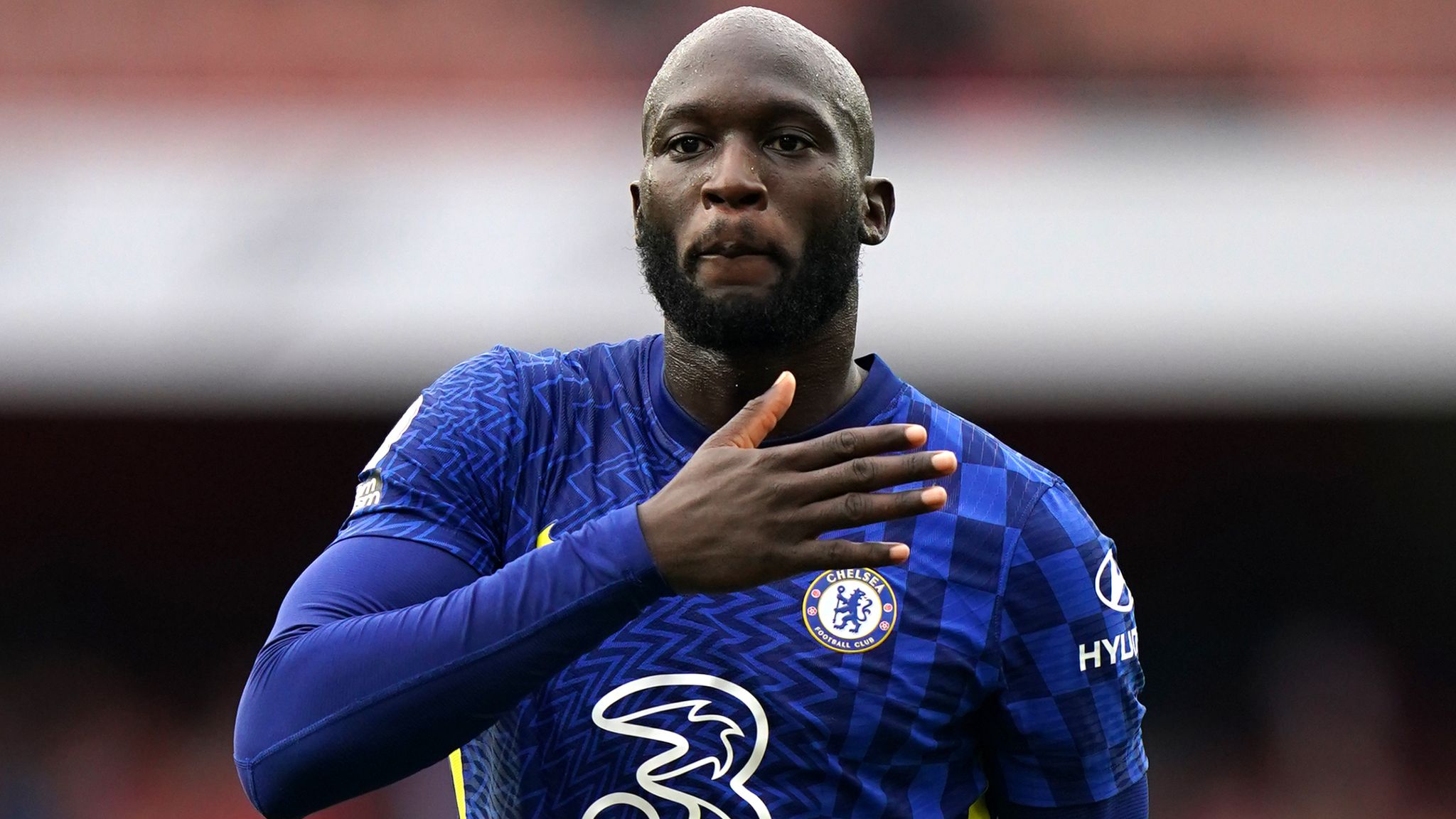Home>Entertainment>Hereditary: Is It Worth The Hype? Plus, Must-Watch Horror Movies With Similar Themes!


Entertainment
Hereditary: Is It Worth The Hype? Plus, Must-Watch Horror Movies With Similar Themes!
Published: February 3, 2024
Discover if "Hereditary" lives up to the hype and explore must-watch horror movies with similar themes. Get the latest entertainment insights and recommendations here!
(Many of the links in this article redirect to a specific reviewed product. Your purchase of these products through affiliate links helps to generate commission for Noodls.com, at no extra cost. Learn more)
Table of Contents
Introduction
The horror genre has always been a magnet for thrill-seekers and aficionados of the macabre. It's a realm where the line between reality and the supernatural blurs, and where the deepest fears of humanity are brought to life. In the midst of this chilling landscape, a film emerged in 2018 that sent shockwaves through the horror community: "Hereditary." Directed by Ari Aster, this film quickly garnered attention for its unrelenting terror and haunting narrative.
"Hereditary" follows the Graham family as they grapple with the aftermath of the matriarch's death. The film delves into the complexities of grief, trauma, and the sinister forces that lurk in the shadows of their lives. As the story unfolds, the audience is plunged into a nightmarish journey, where the distinction between psychological terror and supernatural horror becomes increasingly blurred.
With its spine-tingling atmosphere and masterful storytelling, "Hereditary" captivated audiences and critics alike, earning a reputation as a modern horror masterpiece. Its ability to evoke profound unease and lingering dread has solidified its place in the pantheon of memorable horror films.
In this article, we will delve into the enigmatic world of "Hereditary," exploring the elements that contributed to its widespread acclaim. Furthermore, we will unravel the reasons behind the fervent hype surrounding the film, shedding light on its impact within the horror genre. Additionally, we will embark on a journey to uncover other horror movies that share similar themes, providing a guide for those who seek to explore the depths of terror in cinematic storytelling. So, fasten your seatbelts and prepare to navigate the unsettling terrain of "Hereditary" and beyond.
Understanding Hereditary
"Hereditary" is a film that defies conventional horror tropes, transcending the genre with its unflinching exploration of human anguish and the sinister forces that lurk in the shadows. At its core, the film is a harrowing portrayal of the Graham family's descent into a nightmarish realm, where the boundaries between the real and the otherworldly begin to blur.
The narrative unfolds against the backdrop of unspeakable tragedy, as the Graham family grapples with the loss of their secretive and enigmatic matriarch, Ellen. The film introduces the audience to a world permeated with an aura of unease, where the characters navigate a labyrinth of grief, guilt, and the looming specter of inherited trauma.
Ari Aster, the mastermind behind "Hereditary," skillfully crafts an atmosphere of dread that permeates every frame of the film. From the haunting cinematography to the unnerving sound design, every element coalesces to immerse the audience in a palpable sense of disquiet. The unsettling imagery and meticulously constructed scenes serve as a conduit for the film's underlying themes, plunging viewers into a realm where the boundaries of reality and nightmare intertwine.
Central to the film's narrative is the character of Annie, portrayed with haunting intensity by Toni Collette. As the matriarch of the Graham family, Annie becomes embroiled in a web of terror and despair, grappling with the weight of her family's dark legacy. Collette's performance is a tour de force, capturing the raw emotional turmoil and psychological unraveling that propels the story forward.
As the film unfurls, it delves into the intricacies of inherited trauma and the cyclical nature of suffering, weaving a tapestry of horror that transcends mere jump scares and superficial frights. "Hereditary" beckons viewers to confront the depths of human despair and the malevolent forces that lay claim to the family's fate.
In essence, "Hereditary" stands as a testament to the power of psychological horror, wielding its narrative prowess to ensnare audiences in a web of terror and introspection. By peeling back the layers of familial anguish and unearthly dread, the film leaves an indelible mark on those who dare to traverse its chilling landscape.
Analyzing the Hype
The fervent hype surrounding "Hereditary" can be attributed to its profound impact on the horror genre and its ability to subvert traditional tropes, leaving an indelible impression on audiences and critics alike. One of the pivotal factors contributing to the film's acclaim is its unrelenting commitment to psychological terror, eschewing cheap thrills in favor of a deeply unsettling exploration of human anguish and supernatural forces.
Ari Aster's directorial prowess is a cornerstone of the film's acclaim, as he deftly navigates the murky waters of familial trauma and otherworldly malevolence. His meticulous attention to detail and the deliberate pacing of the narrative create a sense of mounting dread that lingers long after the credits roll. This masterful control over the film's atmosphere and narrative trajectory has cemented "Hereditary" as a tour de force in the realm of horror cinema.
Furthermore, the performances in "Hereditary" have been lauded for their raw emotional intensity and unwavering commitment to portraying the harrowing descent into terror. Toni Collette's portrayal of Annie, in particular, has been hailed as a revelation, capturing the visceral turmoil and psychological unraveling that propels the film's narrative. The authenticity and depth of the performances resonate with audiences on a profound level, intensifying the impact of the film's themes and imagery.
The film's unflinching exploration of inherited trauma and the cyclical nature of suffering has also contributed to its widespread acclaim. By delving into the depths of familial anguish and the insidious legacy that haunts the Graham family, "Hereditary" transcends the confines of traditional horror, offering a chilling meditation on the human psyche and the forces that lurk in the shadows of our collective consciousness.
Moreover, the film's ability to evoke profound unease and lingering dread has solidified its place as a modern horror masterpiece. Its narrative complexity and thematic depth invite audiences to confront the darkest recesses of the human experience, leaving an indelible mark on those who dare to traverse its chilling landscape.
In essence, the fervent hype surrounding "Hereditary" can be attributed to its ability to redefine the horror genre, infusing it with a potent blend of psychological terror, visceral performances, and a narrative that transcends the boundaries of traditional frights. As a result, the film has left an enduring legacy, captivating audiences and critics with its unyielding commitment to unearthing the depths of terror and despair.
Exploring Similar Themes in Horror Movies
In the realm of horror cinema, certain themes and motifs resonate across different films, weaving a tapestry of terror that transcends individual narratives. "Hereditary" delves into the complexities of inherited trauma, psychological unraveling, and the interplay between the supernatural and the human psyche. These themes reverberate through the annals of horror, connecting "Hereditary" to a broader tapestry of chilling narratives.
One prevalent theme that echoes throughout the horror genre is the exploration of familial anguish and the legacy of trauma. Films such as "The Babadook" and "The Others" delve into the intricate dynamics of familial terror, unearthing the harrowing repercussions of unresolved trauma within the confines of the home. The intergenerational transmission of fear and suffering serves as a linchpin for these narratives, mirroring the thematic underpinnings of "Hereditary" and amplifying the psychological resonance of the stories.
Furthermore, the intersection of grief, guilt, and the supernatural permeates a myriad of horror films, forging a thematic kinship with "Hereditary." "The Sixth Sense" and "The Orphanage" navigate the haunting terrain of spectral encounters and unresolved emotions, intertwining the supernatural with the deeply personal. These films echo the profound emotional depth of "Hereditary," intertwining the otherworldly with the visceral in a symphony of terror and introspection.
Moreover, the exploration of psychological disintegration and the blurring of reality and nightmare serves as a thematic nexus that binds "Hereditary" to a pantheon of psychological horror. "Rosemary's Baby" and "The Shining" unravel the fabric of sanity and perception, immersing audiences in a labyrinth of psychological terror and existential dread. These films parallel the disquieting journey embarked upon in "Hereditary," inviting viewers to confront the fragile boundaries of the human mind and the malevolent forces that seek to unravel it.
In essence, the thematic tendrils of "Hereditary" extend beyond the confines of its narrative, intertwining with a myriad of horror films that share similar thematic resonance. The exploration of inherited trauma, psychological unraveling, and the convergence of the supernatural and the human experience binds these narratives together, offering a chilling tapestry of terror that transcends individual stories. As audiences delve into the unsettling terrain of these films, they are confronted with the enduring echoes of fear, grief, and the enigmatic forces that lurk in the shadows of our collective consciousness.
Must-Watch Horror Movies with Similar Themes
-
The Babadook: This Australian psychological horror film delves into the harrowing complexities of grief, trauma, and the insidious nature of suppressed emotions. The narrative unfurls within the confines of a mother-son relationship, where the manifestation of fear and anguish takes on a menacing form. As the characters grapple with the haunting presence of the Babadook, the film offers a poignant exploration of inherited trauma and the psychological unraveling that accompanies it.
-
The Others: Set in a remote estate cloaked in an eerie shroud of isolation, this atmospheric horror film navigates the enigmatic terrain of spectral encounters and the haunting repercussions of unresolved emotions. As the protagonist, played by Nicole Kidman, contends with the enigmatic forces that permeate her home, the film intertwines the supernatural with the deeply personal. The thematic resonance with "Hereditary" lies in the exploration of grief, guilt, and the blurred boundaries between the real and the otherworldly.
-
The Sixth Sense: M. Night Shyamalan's iconic supernatural thriller weaves a tale of spectral encounters and the profound impact of unresolved emotions. The film's thematic kinship with "Hereditary" is evident in its exploration of the intersection between the supernatural and the deeply personal. As the young protagonist grapples with his ability to perceive the spectral realm, the narrative delves into the intricacies of grief, guilt, and the enduring echoes of unresolved trauma.
-
Rosemary's Baby: This classic psychological horror film immerses audiences in a web of paranoia, psychological disintegration, and the insidious forces that encroach upon the protagonist's reality. The thematic resonance with "Hereditary" lies in the unraveling of sanity and perception, as the narrative navigates the fragile boundaries of the human mind and the malevolent forces that seek to unravel it.
-
The Shining: Stanley Kubrick's masterful adaptation of Stephen King's novel plunges audiences into a labyrinth of psychological terror and existential dread. The film's thematic parallels with "Hereditary" are evident in its exploration of psychological disintegration and the blurring of reality and nightmare. As the protagonist grapples with the malevolent forces that permeate the haunted Overlook Hotel, the narrative confronts the fragile boundaries of sanity and the enigmatic forces that seek to unravel it.
These must-watch horror movies resonate with the thematic underpinnings of "Hereditary," offering a chilling exploration of inherited trauma, psychological unraveling, and the convergence of the supernatural and the human experience. As audiences embark on the unsettling journey presented in these films, they are confronted with the enduring echoes of fear, grief, and the enigmatic forces that lurk in the shadows of our collective consciousness.
Conclusion
In the realm of horror cinema, "Hereditary" stands as a testament to the enduring power of psychological terror and the unyielding exploration of human anguish and otherworldly malevolence. The film's enigmatic narrative, coupled with its unrelenting commitment to unsettling imagery and visceral performances, has solidified its place as a modern horror masterpiece. As audiences navigate the chilling terrain of "Hereditary," they are confronted with a harrowing journey that transcends mere jump scares and superficial frights.
The fervent hype surrounding "Hereditary" is a testament to its ability to redefine the horror genre, infusing it with a potent blend of psychological terror, thematic depth, and narrative complexity. Ari Aster's directorial prowess and the raw emotional intensity of the performances have left an indelible mark on audiences and critics, propelling the film into the pantheon of memorable horror experiences.
Moreover, "Hereditary" serves as a thematic nexus that binds a myriad of horror films, resonating with narratives that delve into inherited trauma, psychological unraveling, and the convergence of the supernatural and the human experience. As audiences explore the thematic tendrils that extend beyond the confines of "Hereditary," they are confronted with a chilling tapestry of terror that transcends individual stories, echoing the enduring echoes of fear, grief, and the enigmatic forces that lurk in the shadows of our collective consciousness.
In essence, "Hereditary" beckons audiences to confront the darkest recesses of the human experience, inviting them to unravel the intricacies of familial anguish, psychological disintegration, and the insidious legacy that haunts the Graham family. As the film unfolds, it unearths the depths of terror and despair, leaving an indelible mark on those who dare to traverse its chilling landscape.
As we bid adieu to the enigmatic world of "Hereditary," we are reminded of the enduring impact of the film on the horror genre and its ability to provoke introspection and unease. It stands as a testament to the unyielding allure of horror cinema, beckoning audiences to confront the enigmatic forces that lurk in the shadows of our collective consciousness. So, as we venture forth from the unsettling embrace of "Hereditary," we carry with us the enduring echoes of fear, grief, and the profound unease that lingers long after the credits roll.














